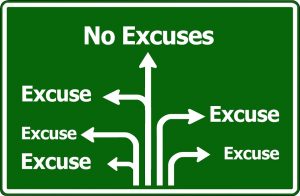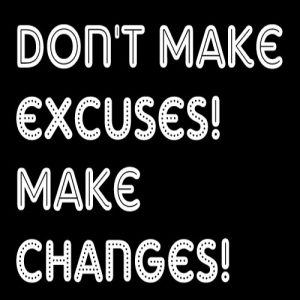One More Year of Choices…
By Barbara Dahlgren
 I recently read an article about a woman who wanted her husband to put his dirty clothes in the laundry hamper instead of dropping them on the floor. The author went to great length explaining that there was probably some sort of underlying, psychological reason why the man didn’t want to put the dirty clothes in the hamper. I’m not singling out men here. Some women have the same problem. The author felt that if they could get to the core of the reason behind the action, the problem would be solved.
I recently read an article about a woman who wanted her husband to put his dirty clothes in the laundry hamper instead of dropping them on the floor. The author went to great length explaining that there was probably some sort of underlying, psychological reason why the man didn’t want to put the dirty clothes in the hamper. I’m not singling out men here. Some women have the same problem. The author felt that if they could get to the core of the reason behind the action, the problem would be solved.
Honestly???? Give me a break. Here’s a reason for you: people just don’t want to do certain things, so they don’t do them.
I am so tired of people trying to explain away their bad habits. I don’t doubt we could solve the world’s problems by getting to the psychological reasons of why we do what we do, but that doesn’t stop our bad habits. Bad habits are there because we have allowed them to become an ingrained part of our lives. To understand why we do something is marvelous; to stop doing it is something else entirely.
Now it might be a little different if this couple were not living in a shared space. If a person had a room of his/her own and wanted to leave clothes all over the place, then so be it. Or if this couple could afford a cleaning lady to come in daily, so be it. More power to them! Problem solved. But if other arrangements can’t be reached, then this couple should learn to work together on the problem, agreements must be made, and a mutual plan of action taken. Or else they will just have to learn to live with dirty clothes scattered around and stop complaining about it. Because complaining about another’s bad habits does not change the situation.
Picking up dirty clothes is fairly small in comparison to other areas of our lives. However, it could be a metaphor for just about any behavior. People have to learn to function in society. Jobs must be done or people get fired. Bills must be paid on time or fines and penalties occur. Good grooming might be necessary if one wants friends.
We all have excuses for what we do or don’t do, and while they may be valid, they might not help us lead happier lives co-existing with others. As the Bible says, something might be lawful but not expedient, or it might be permissible but not beneficial. (1 Corinthians 6:12) In other words, just because we can justify what we do, doesn’t mean it’s the best course of action to do it.
Does that mean we are unsympathetic because some people have to struggle with certain issues more than others? No! It means just because we understand why people do certain things does not give them license to do it. Just because we have an excuse for what we do doesn’t mean we should continue doing it.
Consider this… People don’t care if we are having a bad hair day, have eaten too much sugar, have a chemical imbalance, were poor as children, had parents who paid more attention to our siblings than us, were potty trained too early or late, have a temper because we’re Irish, are lazy because we never had to go out and get a job, or are slobs because our mothers picked up after us. And while these may be valid reasons for the bad habits we’ve acquired through the years, at some point we have to stop making excuses for ourselves and just do what we should do: get up, pick up, clean up, and grow up!

Suggestions for practicing this choice…
- Learn to take responsibility for your actions. Occasionally you might have to say, “I’m sorry. I was wrong. I shouldn’t have done that.” It won’t kill you. Taking responsibility actually gives you a certain kind of personal power.
- Believe it or not, people already know you are not perfect. So when mistakes are made, learn what you can and move on.
- When you find yourself making an excuse, ask yourself why. Is it to get out of trouble? Is it to justify bad behavior? Is it to avoid responsibility? Is it to do what you want rather than what should be done? If the answer is yes, better make some changes.
- Never say you can’t change. Everyone can change. What you really mean is that you choose not to make changes because change is difficult. At least be honest with yourself.
- Remember this quote from Benjamin Franklin. “He who is good at making excuses is seldom good for anything else.”

